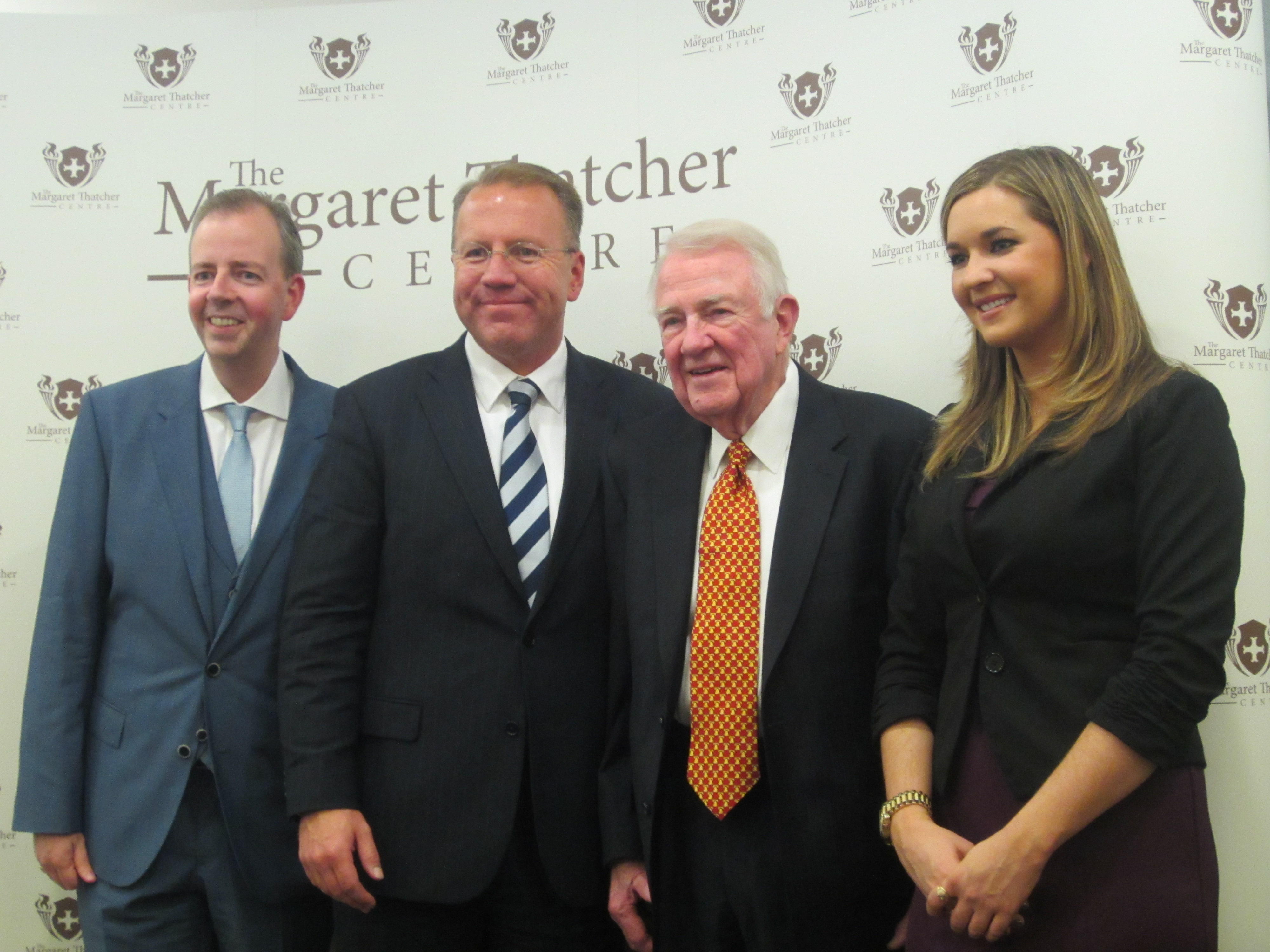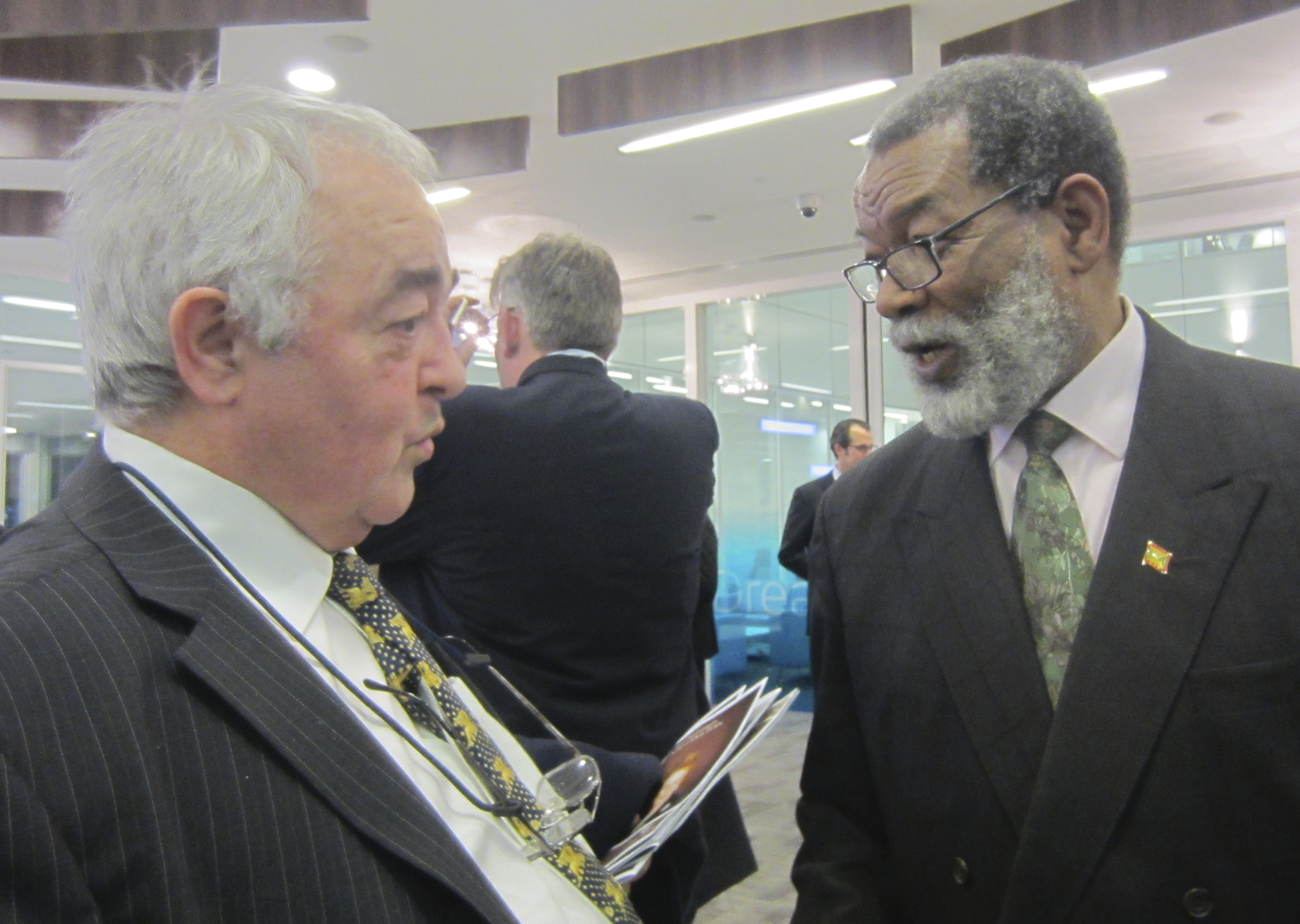Take a look at this short pamphlet that I produced for Michael Mainelli and all at Long Finance in the City of London. Enjoy!
Category Archives: Blog
YouTube Videos about Science’s First Mistake
I have started producing a series of videos that are published on YouTube. Just go to the video link above and you can view them
Princess Caroline

This is my latest purchase on e-Bay. I am managing to link my research into the Future (and Past) of Money, particularly private money, with my writing of occult fiction. I’ve been on the lookout for any token coinage related to Princess Charlotte (daughter of George IV) and Princess Caroline (of Brunswick) her mother. I’ve managed to get a number of Charlotte coins, but this is my first Caroline. These ladies (and their modern-day incarnations) play a big role in Sons of Asterion, the first of a series of books written with Dionysios Demetis under the pen-name Richard Croft. See www.RichardCroftWorld.com.
Jeremy Corbyn in the Age of Algorithms
An economic philosophy based around the worker, and the `dignity of labour` may have been appropriate for the nineteenth and early twentieth centuries, but in the Age of Algorithms it is degenerate and unsustainable. Because of the ubiquitous computer, labour has become a commodity, and commodities compete on price. Imposing the higher costs of artificially supporting labour within a single political jurisdiction will only lead to production moving elsewhere. Talent alone generates wealth. It is welcome everywhere, and talented individuals will also move away if excessive demands are made on them to support the preferred voters of a failing democracy. These ideas are covered in the book I wrote with David Lesperance: Flight of the Golden Geese. See www.flightofthegoldengeese.com.
It is pointless bleating about the unfairness of it all. The die is cast and there is nothing anyone can do about it. And there is no point in resorting to moral arguments, which is what Syriza did in Greece. The surge in support for Corbyn is the same delusion transplanted to the UK. Unlike many in the hysterical right wing press, that say Corbyn cannot win a general election, I beg to differ. His is a philosophy designed for losers, and Britain is full of losers (those who have only untalented labour or unemployability to offer), who if organised can certainly win a majority, just like Alexis Tsipras did in Greece. And a fat lot of good that did them: turkeys voting for Christmas. Raising a democratic majority is no defence against economic inevitability. `Nature is not immoral, when it had no pity for the degenerate`.
Corbyn and his mates, just like Tsipras, believe that emulating King Canute they can demand the tides retreat. All they are doing on the beach of reality is sticking their heads in the sand, to demand that the world changes, and the unfairness must go away. The will of the people will make it so! The Greeks eventually learned that if they bend over with their heads in the sand eventually they are all going to get buggered. Along with everyone who stays to face the consequences. Greece is facing a major brain drain … the very talent it needs to generate wealth. With Corbyn’s nineteenth century economics Britons are sleepwalking towards the same doom-laden destiny.
Six Maxims for Fairer Taxation
In our recently published book, Flight of the Golden Geese[1] (co-author David Lesperance), we describe the requirements for a Smart Region, that is any nation-state/state/area/town/suburb that is optimized to succeed in the globalized and networked world of the twenty-first century. The Smart Region is right-sized, and is particularly attractive to both major corporations and high net worth individuals.
The importance of these regions is a recognition that age of mass production is over; success in the twenty-first century requires a specialized and focused production facilitated by talent workers, not a semi-skilled and unskilled workforce, or by a bloated public sector. And yet it is the preferred voters of these three groups that self-indulgently drive the political imperative, and insist on `fair`, that is excessive taxation of the wealthy.
The blatant behavior of tax authorities to treat the minority of hard working wealth creators as ‘taxation in waiting’ is a sure and certain sign of a country on the slide. Greed over an excessive tax-take blinds their political masters to the long-term consequences of their actions. Because the targets of taxation will no longer remain passive, as the country reaches a tipping point.
Consider today’s USA where there are nearly twice as many `workers` in government (22.5 million) than in all of manufacturing (11.5 million)[2]. In 1960, there were 15 million in manufacturing, and only 8.7 million paid by government. The IRS is driving out America’s super-rich. Three thousand Golden Geese left their shores last year because of taxation[3].
The unsentimental words of the nineteenth century philosopher Friedrich Nietzsche come to mind: “Many too many are born. The state was devised for the superfluous ones”[4].
Of course any real world incarnation of the Smart Region will always fall short of perfection, but hopefully by not too great a margin. In order to be attractive to wealth creators, the smart region should implement policies, particularly tax policies, that expand its critical mass of scientific, technological and commercial expertise, underpinning it with an effective education system, and highly selective immigration policy that regenerates and/or develops a top quality human resource.
Most importantly the tax policies must be attractive, and fair to all (including the wealthy). The problem is that the commonly accepted definition of ‘fair’ among populist politicians is usually totally unfair to the rich – in many countries even the thought of being fair to the rich is met with derision. “Don’t tax you, don’t tax me. Tax that fellow behind the tree.”[5]
The prevalent political rhetoric moralizes about taxation. How easily they forget Learned Hand’s famous words : “over and over again courts have said that there is nothing sinister in so arranging one’s affairs as to keep taxes as low as possible. Everybody does so, rich or poor; and all do right, for nobody owes any public duty to pay more than the law demands: taxes are enforced exactions, not voluntary contributions. To demand more in the name of morals is mere can’t.”[6]
Of course “Taxes are what we pay for civilized society.”[7] Also “The power of taxing people and their property is essential to the very existence of government.”[8] Although my old colleague at the London School of Economics Ken Minogue[9] would probably have phrased this differently: “The purpose of government is to raise taxes to pay for government.”
The questions remain: who pays? how much? and in what way? A Smart Region will be right-sized, with the taxpayers outnumbering the tax-takers. In that way taxes will stay low. Their rnlightened governments avoid getting involved in anything that doesn’t concern them. A shrinking government means shrinking deficits. But of course there has to be some taxation.
Nothing has changed. Colbert[10] was clear about this way back in seventeenth century France, “The art of taxation consists in so plucking the goose as to obtain the largest possible amount of feathers, with the smallest possible amount of hissing”.
If the hissing reaches a cacophony, then as we predict in Flight of the Golden Geese, these globally mobile group of disillusioned taxpayers will fly away. This one percent of the population regularly pays over a third of personal taxes. If they feel that the taxes are prices worth paying in return for the benefits that accrue, then they will stay, all is well, and the economy enters a virtuous circle. If they resent paying, then they will opt out, and a vicious circle beckons.
As Thomas Jefferson explained: “Merchants have no country. The mere spot where they stand on does not constitute so strong an attachment as that from which they draw their gain.”[11] So how does the state ensure a strong attachment? By developing a taxation model that is appropriate to all, and not just to its vocal majority.
To answer the question of an appropriate level of taxation, what better place to start than with Adam Smith’s Wealth of Nations[12]. In Book Five, Chapter 2, paragraphs 25–28, Smith outlines his four maxims for fair taxation. These can be summarized under the headings: equanimity, certainty, convenience, and economy. I would add two more: simplicity and necessity.
• Equanimity: every citizen/company in the jurisdiction should contribute, but in proportion to their respective abilities to pay; those in similar positions should pay similar amounts.
• Certainty: there should be no arbitrary taxation; and the mode of the tax demand, and the timing of collection should be predictable.
• Convenience: tax should be easy to understand, clear in application, easy to calculate, and payment easy to collect at a time appropriate to the payer.
• Economy: the cost of collection should be as low as possible, utilizing the fewest officers and inspections, and the scale taxation should not distort the economy or discourage enterprise and effort.
• Simplicity: part of the problem with taxation is the cost of compliance. By making the tax rules as simple as possible this waste of time and money can be reduced, all promoting a virtuous circle. The taxes coming out of Westminster and Brussels are seen as a denial of service attack on business.
• Necessity: tax will go to pay only the government expenditure that is absolutely necessary. Charity begins at home. Vain politicians must not be allowed to preen and posture on the world stage, and involve the state in vastly expensive foreign (mostly military) misadventures, and the doling out of largesse to preferred voters.
Sadly few modern nation-states conform to these simple rules, and everywhere vainglorious government are squandering scarce resources, and placing their tax base at risk. Because globalization has changed the nature of trade. Today’s transnational company has decentralized and distributed itself around the globe, becoming a ‘virtual enterprise’ – project-based, and networked around global information systems. Consequently, companies have access to a billion new unskilled/semi-skilled workers, and so will choose to subcontract the requisite labour rather than employing it in-house. Thus labour has become a commodity despite all the denials coming out of the OECD, and so must compete on price; hence the rush to off-shoring of production jobs from the US and other developed countries. Consequently, the impending curse of mass unemployment will affect every unprepared nation-state. Taxation will be part of the equation.
Innovative firms and entrepreneurial individuals will cluster in smart regions, the very concentration acting as a magnet for established innovators and a spur for new enterprise. “Spectacular growth comes from these self-perpetuating hot-spots that thrive on their own energy. This energy drives a rapid, almost uncontrolled diffusion of technological techniques and knowledge. The hot spot itself fuels the engine of endogenous growth by delivering innovation. But only within a network of trust relationships, where only invited talent is allowed to join in an institutional environment that both mobilizes the intellectually gifted, and promotes and finances entrepreneurial activity by delivering the right incentives.”[13]
The Golden Geese (their wealth and companies) are indifferent to, and unhindered by (national) boundaries and barriers. They identify only with regions that serve their particular interests, and then only temporarily; they will walk away from a region just as easily as they entered it. The Smart Region uses its tax policies to make itself commercially and socially attractive to the migrating Golden Geese, who are transnational and relocate physically, fiscally and electronically to where the profit is greatest and the regulation/taxation least.
Ian O. Angell
REFERENCES
1. Angell I.O. & Lesperance D.S. (2015), Flight of the Golden Geese, Bullhorn Press, Boston, MA.
2. S. Moore (2014), `We’ve Become a Nation of Takers, Not Makers`, WSJ April 1.
3. https://www.federalregister.gov/quarterly-publication-of-individuals-who-have-chosen-to-expatriate
4. Nietzsche, F. (1969), Thus Spake Zarathustra, translated by Hollingdale, R.J., Penguin Books, London
5. Russell B. Long (1948-1987), U.S. Senator for Louisiana.
6. Billings Learned Hand (1872-1961), U.S. Judge and judicial philosopher.
7. Oliver Wendell Holmes Jr. (1809-1894), U.S. Supreme Court Justice.
8. James Madison, the 4th President of the United States.
9. Emeritus Professor of Political Science, London School of Economics.
10. Jean-Baptiste Colbert was French King Louis XIV’s Minister of Finances from 1665 to 1683.
11. Thomas Jefferson to Horatio G. Spafford, 1814. The Writings of Thomas Jefferson, Memorial Edition, (Lipscomb and Bergh, editors) Vol. 14:119.
12. Adam Smith (1999), The Wealth of Nations, Penguin Classics, London.
13. Flight of the Golden Geese (ibid.) www.flightofthegoldengeese.com
Non-Dom Bashing
So it’s no more pretending. In his latest outpouring, Ed Milliband is clear that Labour Party policy is the unfettered politics of envy. Whenever the word `fair` appears in their propaganda you can be sure they are pandering to the petty, mean-spirited and vindictive among the electorate. Will they ever listen to Abraham Lincoln’s profound words: “You cannot help the poor by destroying the rich.You cannot lift the wage-earner up by pulling the wage-payer down”.
So it is with Milliband’s determination to end non-dom status in the UK, irrespective of the damage it would cause to the economy. Be sure these high net worth individuals (HNWIs) will leave, just as we describe in Flight of the Golden Geese (www.flightofthegoldengeese.com), taking their spending power, their innovation, and their creation of employment with them. Furthermore, if these HNWIs sell up, then property values will drop across the board, eventually hitting sterling.
The simple fact is that these people don’t need to be here. HNWIs are made to feel welcome most places in the world. They are no cost to the state, and they are bringing `free` money into the economy. No doubt there will be many whingers who will say `good riddance` when they pack up and leave … just like they said in France. And look at the mess they are in.
Far from raising billions in taxes, this programme is likely to see a fall in tax revenues, as the taxes HNWIs do pay will cease, and unemployment will increase in the service and entertainment sectors.
There is no such thing as Newton’s Law of Taxation: where to every action (that is an increase in tax rates) there is an equal and opposite reaction (namely everybody pays up in full). According to politician’s simplistic arithmetic logic, tax creates a revenue stream, and higher tax levels make for a larger stream. Not in the non-linear world of consequences, of the Laffer Curve, it doesn’t.
The only law the Revenue should consider is that of Diminishing Returns. Taxing is disturbing. There is an uncertainty principle at play here. The act of taxing disturbs and changes the attitude of the persons being taxed, and those doing the taxing. Keep increasing tax levels, and the tax-base collapses. And when the tax-base collapses, so does the economy, and ultimately so does the country. Death by taxes – a lesson that every socialist state eventually learns.
Unfortunately the rate of tax needn’t even be that high – the mere introduction of a new tax is interpreted by HNWIs as a statement of intent, a signal of more to come. And be sure these Golden Geese will fly away.
Today Zimbabwe, tomorrow the world?
A recent purchase off eBay … a ten million dollar note from Zimbabwe. It was issued on January 1st 2008, with a ‘use-by date’ of June 30th 2008.
We smugly think this couldn’t possibly happen here. But don’t be too sure. The confidence trick of fiat money,can also go wrong across the developed world. Maybe the digitalization of money via crypto-currencies could make distrusted fiat money obsolete
Distrusted? Fiat money (the money that most of us use in day-to-day transactions): in convertible paper money made legal tender by a government decree, which allows it to ‘function as money’. ‘Fiat’ is Latin for ‘let there be’. Fiat currency is a system of government tokens that are used to cancel tax debt. All the other uses of this money, like shopping, are secondary.
Fiat money: a UK £50 bank note states that the Bank of England promises to pay the bearer on demand the sum of £50. Go to the bank and demand £50. You are just given other note(s) making the same promise; just pieces of paper.
How did we end up with fiat money? Why do we accept its circular promises? Because it’s the only game in town, and fiat money works … usually! And why does it work? Because everybody else in our community accepts that money has value! In fact the modern world couldn’t manage without it. Hence my definition of money. Money is: any self-referential system of exchange tokens that its users believe to be, and use as Money.
The history of money has been one of government interference. State (and more recently Central Bank) inspired inflation is as old as money itself; from ancient Babylon, to 14th century China, to the ‘Great Debasement’ of Henry VIII, to the Weimar Republic, right up to present day Zimbabwe putting use-by dates on their notes.
But what if there is an alternative? A privately owned international peer-to-peer system of money? What if the rich decide they are tired of seeing their wealth stripped away by state manipulation of cash.
This after all is the reason why Bitcoin has been so successful. Will it be the sought after stateless currency? Who knows? But blockchain technology has opened up the Pandora’s box. The realisation that is possible to hold money that is not manipulated by the state has come as a shock. Bitcoin may eventually fail, but eventually we will see a series of next-generation crypto-currencies that will find user communities. A mass exodus from fiat currencies will follow the Flight of the Golden Geese, and this could mean that sterling, euro and US dollar notes will follow Zimbabwe to sport use-by dates. You have been warned!
The End of Tax Evasion
The days of tax evasion are over. As for avoiding taxes, avoidance is simply evasion that the government hasn’t yet turned into evasion and made illegal. The moment Swiss banks and the like decided to computerize their accounts the game was up for tax evasion. There is no such thing as a secure computerized database; eventually they all leak like sieves. Sooner or later somebody will pass the financial details of tax evaders on to the authorities – possibly even the bank itself will be the informant should they be placed under enough political or commercial pressure. After the disclosures of Heinrich Kieber and Hervé Falciani, the world of tax evasion will never be the same again.
Kieber worked in the IT department of the Liechtenstein Global Trust (LGT) bank in Vaduz, the capital of the Principality, between 2000 and 2002. Someone in the bank had the bright idea of computerizing all the bank’s records – they imagined their clients being impressed by the efficiency with which their records were managed. Kieber was part of the team undertaking the task, but while employed there he surreptitiously downloaded the financial details of clients onto four DVDs. In 2006 he was paid nearly 5 million Euros by the German tax authorities for a list of German clients of the bank. As an extra bonus he was also given a new identity. Subsequently Kieber was paid a further £100,000 by the UK tax authorities for a list of 300 British clients. Kieber also spilled the beans on LGT’s operations on behalf of American clients to the US Senate Permanent Subcommittee on Investigations, where he described in detail the bank’s procedures for obfuscating the provenance of assets. A transcript of his evidence is even available online.
Then there was Hervé Falciani, who is in the news today. He was arrested by Geneva police late in 2008 for data theft. When he was working as a software engineer at HSBC’s private bank in Switzerland, Falciani downloaded details on 24,000 clients. He skipped the country, and then passed the details on to the French authorities, and consequently they recovered nearly 500 million Euros in unpaid taxes. The French also forwarded information to their counterparts in the UK and elsewhere. Only now has the information hit the UK news. HMRC has been quietly pinning down the UK tax evaders in Falciani’s lists, and are instigating civil actions so as to maximise the tax take from the evaders.
The authorities have won the battle, but will they win the war? With the end of tax evasion, and tightening of avoidance rules, it means that high net worth individuals (HNWIs) are faced with a difficult choice: stay and watch their fortunes progressively stripped away, or take flight to jurisdictions that recognize and welcome the enormous positive impact that these people provide for national economies.
In The Flight of the Golden Geese (the e-book will be out soon) we take a long hard objective look at the rationale of the taxation habits of governments, and lay out what HNWIs can do to ensure that what is theirs, remains theirs.
Ronald Reagan Lecture

Had a most enjoyable evening on February 6th at the Inaugural Ronald Reagan Lecture hosted by the Margaret Thatcher Centre to celebrate the great man’s 104th birthday.
From left to right is chairman Donal Blaney, and speakers Ron Nehring, Republican politician; Ed Meese, 75th US Attorney General, friend and adviser to RR, and Katie Pavlich, author and Fox News host.
It was a pleasure to meet them, and His Excellency Joslyn R. Whiteman, High Commissioner for Grenada, who had insightful questions about Ronald Reagan’s ordering of the invasion in 1983 by US troops of his beautiful island. He was a very charming gentleman, who was delighted to hear that we had visited and loved Grenada.
Obama to tax offshore profits
When Walgreen, the US drugstore chain, announced it’s intension of acquiring Boots the Chemists, part of the plan was to shift its headquarters to Switzerland. This caused fury in Obama’s White House, and they lambasted Walgreen for being another US company wanting to embark on the disloyal path of ‘Inversion’.
Get ready for an outflow of American companies. President Obama aims to tax US companies on their cash held abroad, estimated at $2 trillion. His budget proposes companies pay a 14% one-off levy on their cash held offshore, followed by a 19% tax on future profits. Apple, Microsoft and General Electric would face multi-billion dollar bills.
According to Andrew Hunter, an economist at consultancy Capital Economics, the one-off tax could raise at least $238bn this round,and up to $600bn over the next 10 years.
Fat chance. They won’t raise a fraction of this amount. These taxes never do! When the going gets tough, the tough get going. As we predict in Flight of the Golden Geese, companies with be joining high net worth individuals, and bolt for the exit. As for `Inversion`? It’s only just begun among established companies, and all future US entrepreneurs with any sense will be setting up abroad.


